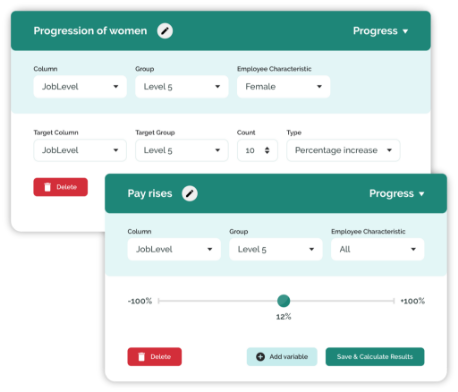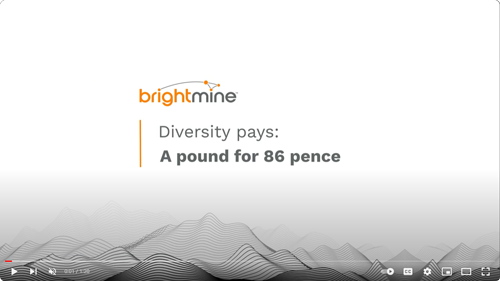Your gender pay gap report will be due soon
But there’s a faster and better way to get it done
For 20+ years, Brightmine (formerly XpertHR) has been the trusted source for HR leaders navigating evolving regulations.
Gender pay gap reporting deadlines:
Public sector – 30 March 2025
DAYS
HOURS
MINUTES
SECONDS
Private sector – 4 April 2025
DAYS
HOURS
MINUTES
SECONDS
Too busy for a demo? Explore at your own pace with our self-guided demo
Watch a demo
Book a demo to see how it works
How Brightmine can help
Brightmine combines AI-enabled technology, critical workforce data, and trusted HR expertise to do more than just reporting your gender pay gap. With upcoming UK requirements for ethnicity and disability pay gap reporting, our solutions help you uncover the ‘why’ behind the gaps and provide clear guidance for meaningful action.
Pay Equity Analytics
In-depth reporting

Instantly create pre-built reports from your securely uploaded pay data. Skip Excel spreadsheets and gain insights, from high-level overviews to detailed analysis, with ease.
Find the gaps

Identify the drivers of pay disparities, without manual effort. Create and test strategies to close them, and improve talent engagement with more transparency and fairness.
Meet changing demands without extra cost

Easily upload new workforce data as changes occur and instantly see the impact on your goals—no costly consultants or external help needed.
How it works
Brightmine Pay Equity Analytics empowers you to drive lasting progress in pay equity for your organisation

Download your report in 3 easy steps

Dive deeper into the data to understand the root of the issue

Enjoy unlimited uploads to measure progress and ensure improvement

Model scenarios to create and test effective strategies
Insight
Unlock key insight to accelerate your path to pay equity. Our expertly crafted insight, from whitepapers to blog posts and event highlights, are brought to you by in-house specialists with over 20 years of HR expertise.
Risks of not reporting or acting on your gender pay gap
Let’s explore the risks of not addressing your gender pay gap:
- In 2024, the Equality and Human Rights Commission (EHRC) named six organisations for missing the deadline to report their 2023-2024 gender pay gap data
- Companies must disclose the average pay difference between men and women, and failure to do so results in a warning from the EHRC, potentially leading to formal enforcement, including investigations and enforceable action plans.
- The EHRC can even seek court orders with unlimited fines for non-compliance.
- Reporting early ensures compliance and can also demonstrate your organisation’s commitment to transparency, helping to build trust and improve your brand reputation.
Learn why it's important to address gender pay gaps
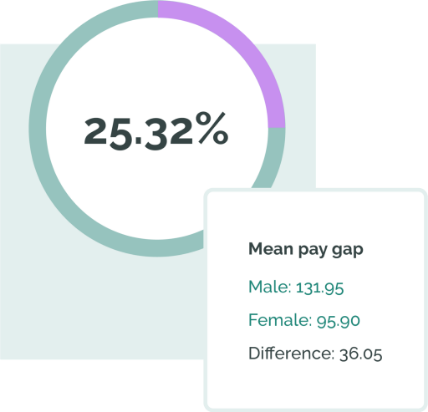
- The Financial Conduct Authority, the conduct regulator for around 50,000 financial services firms and markets in the UK said, firms with a greater understanding of diversity and inclusion will be “better equipped” to provide products and services for a diverse consumer base
- Last year, the FCA set out proposals for firms with requirements to:
- Develop a diversity and inclusion strategy setting out how the firm will meet their objectives
- Collect, report and disclose data against certain characteristics
- Set targets to address under-representation
- However, little progress has been made, the gender pay gap in financial services (27.9%) is still nearly double the UK average (14.3%), making it one of the widest gaps by industry
Learn from this video: Driving sustainable growth in financial sector through pay equity
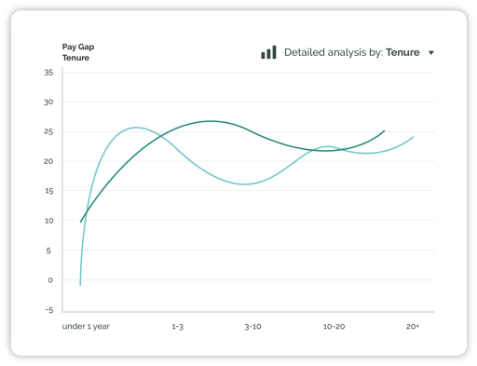
- Equal pay claims in the public sector underscore the pressing need for the public sector to address pay gaps and ensure compliance
- Not just the gender pay gap, under the new Labour Government’s plan, it will be mandatory for employers with more than 250 employees to monitor and report on ethnicity and disability pay. This will mirror the current gender pay gap reporting rules. Employers will need to publish an action plan outlining how they will close any pay gap
- Public and not-for-profit sectors often have a higher degree of public scrutiny and are expected to lead by example. Many public and not-for-profit organisations rely on government funding or grants, which may come with new DEI compliance requirements. Failure to meet these standards could affect their funding
Learn from this video: Diversity pays: A pound for 86 pence
